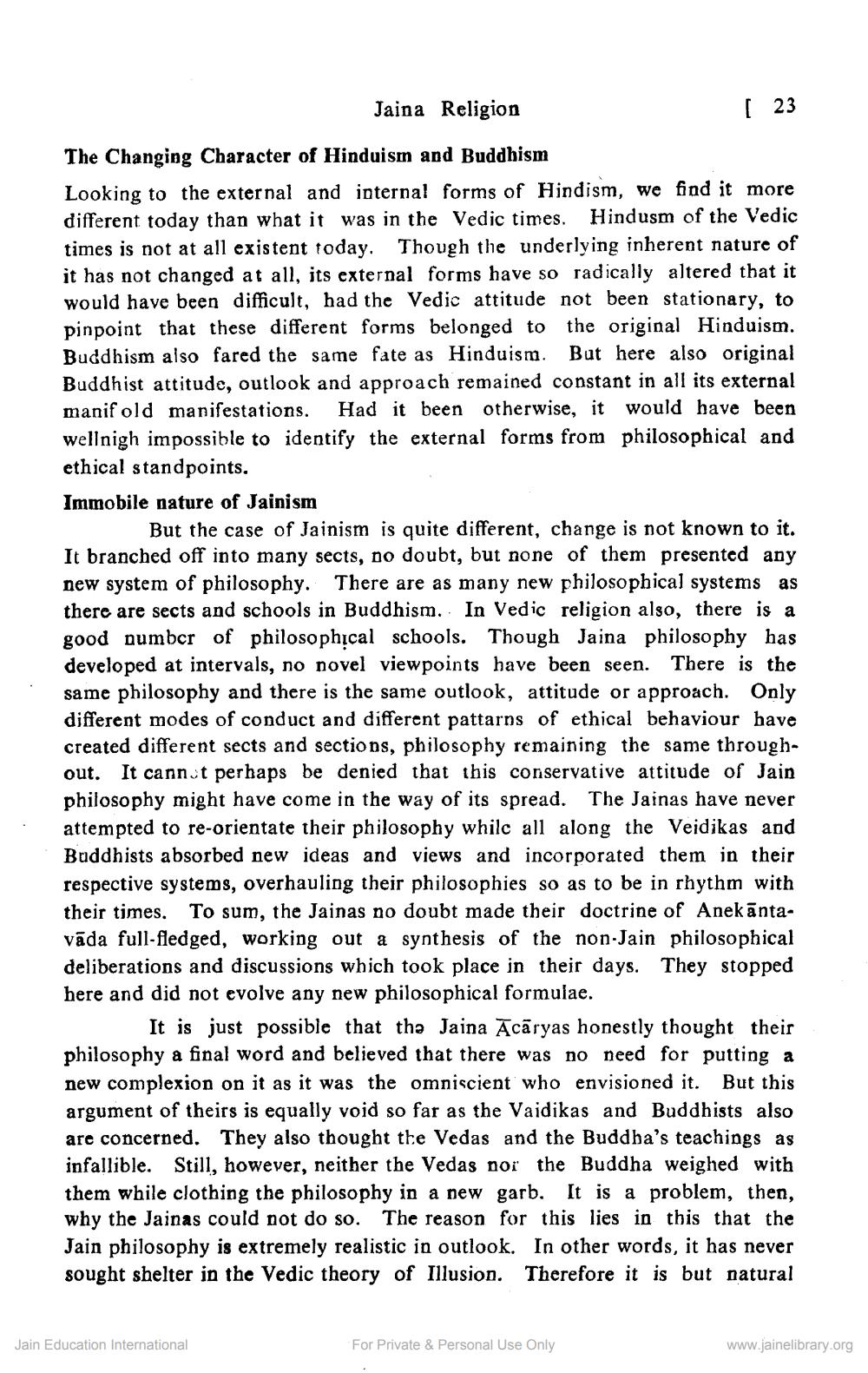________________
Jaina Religion
[ 23 The Changing Character of Hinduism and Buddhism Looking to the external and internal forms of Hindism, we find it more different today than what it was in the Vedic times. Hindusm of the Vedic times is not at all existent today. Though the underlying inherent nature of it has not changed at all, its external forms have so radically altered that it would have been difficult, had the Vedic attitude not been stationary, to pinpoint that these different forms belonged to the original Hinduism. Buddhism also fared the same fate as Hinduism. But here also original Buddhist attitude, outlook and approach remained constant in all its external manif old manifestations. Had it been otherwise, it would have been wellnigh impossible to identify the external forms from philosophical and ethical standpoints, Immobile nature of Jainism
But the case of Jainism is quite different, change is not known to it. It branched off into many sects, no doubt, but none of them presented any new system of philosophy. There are as many new philosophical systems as there are sects and schools in Buddhism. In Vedic religion also, there is a good number of philosophụcal schools. Though Jaina philosophy has developed at intervals, no novel viewpoints have been seen. There is the same philosophy and there is the same outlook, attitude or approach. Only different modes of conduct and different pattarns of ethical behaviour have created different sects and sections, philosophy remaining the same throughout. It cannut perhaps be denied that this conservative attitude of Jain philosophy might have come in the way of its spread. The Jainas have never attempted to re-orientate their philosophy while all along the Veidikas and Buddhists absorbed new ideas and views and incorporated them in their respective systems, overhauling their philosophies so as to be in rhythm with their times. To sum, the Jainas no doubt made their doctrine of Anekāntavāda full-fledged, working out a synthesis of the non-Jain philosophical deliberations and discussions which took place in their days. They stopped here and did not evolve any new philosophical formulae.
It is just possible that the Jaina Ācāryas honestly thought their philosophy a final word and believed that there was no need for putting a new complexion on it as it was the omniscient who envisioned i argument of theirs is equally void so far as the Vaidikas and Buddhists also are concerned. They also thought the Vedas and the Buddha's teachings as infallible. Still, however, neither the Vedas nor the Buddha weighed with them while clothing the philosophy in a new garb. It is a problem, then, why the Jainas could not do so. The reason for this lies in this that the Jain philosophy is extremely realistic in outlook. In other words, it has never sought shelter in the Vedic theory of Illusion. Therefore it is but natural
Jain Education International
For Private & Personal Use Only
www.jainelibrary.org




